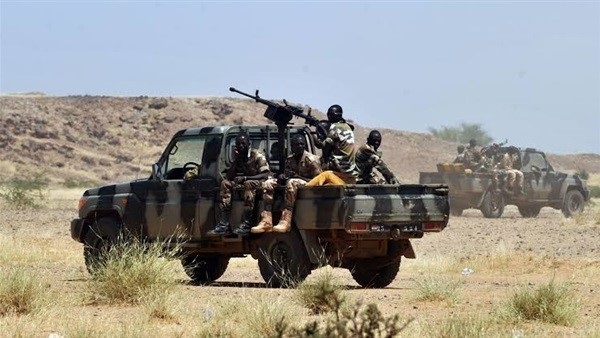ECOWAS and military intervention in Niger: Will the complex mission succeed?

The leaders of the Economic Community of West African States
(ECOWAS) has threatened to use force against the military junta in Niger to
restore democracy in the country.
During a meeting in the Nigerian capital, Abuja, on
Thursday, August 10, the ECOWAS defense ministers discussed the possibility of
military intervention in Niger following the coup that overthrew elected
President Mohamed Bazoum, in the event that
diplomatic efforts to return him to power fail.
ECOWAS, which includes 15 countries, threatened to use force
if the coup leaders did not return Bazoum to power by next Sunday.
Abdel-Fatau Musah, ECOWAS Commissioner for Political
Affairs, Peace and Security, said that defense leaders in West African
countries have drawn up a plan for a possible military intervention in Niger to
counter the coup, and that the plan includes how and when to deploy forces.
Musah added that the group would not disclose to the coup
plotters when and where the strike would take place, adding that the decision
would be taken by heads of state.
ECOWAS faces the problem of containing the democratic
decline in West Africa following a series of coups in the region. The group pledged
not to tolerate any new coup after the military coups in three member states of
the group (Mali, Burkina Faso and Guinea) during the past two years.
This is not the first threat launched by ECOWAS, as it
issued previous threats and implemented them. In 2017, it sent troops to the Gambia
when the country's president at the time, Yahya Jammeh, refused to step down
after losing elections.
Seven thousand members of the Senegalese-led ECOWAS gathered
on the Gambian border, and Jammeh agreed to leave the country and live in exile
in Equatorial Guinea.
About 2,500 soldiers from Senegal, Ghana, Mali, Togo and
Nigeria are still participating in peacekeeping operations in the Gambia.
ECOWAS also has a military force stationed in Guinea-Bissau,
as it redeployed about 600 soldiers from Nigeria, Senegal, Ivory Coast and
Ghana in the wake of a coup attempt in the country in February 2022.
ECOWAS also established a peacekeeping force to restore
elected rule in Liberia and Sierra Leone, while it deployed troops to Ivory
Coast in 2003.
Complex scene in Niger
Any military intervention by ECOWAS in Niger would be
different from the military operation led by ECOWAS in the Gambia, because the
latter is the smallest non-island country in Africa and does not have a strong
army, while Niger is a large country located in the heart of the Sahel region,
and its army has combat experience and received training from the US Army,
which deploys 1,100 soldiers in Niger, in addition to about 1,500 French
soldiers stationed there.
In addition to the complexities of the scene, Mali and
Burkina Faso declared in a joint statement that any military intervention
against the coup leaders in Niger would be considered a declaration of war
against them.
Geographical obstacles
For her part, Nourhan Sharara, a researcher of African
affairs, said there are geographical obstacles facing ECOWAS, which may be the primary
reason to back down from a military attack.
In a special statement to the Reference, she confirmed that Niger’s
neighboring countries know that the military solution will not have good
consequences and will lead to crises that the region cannot bear, where the
implementation of any military intervention in Niger by ECOWAS or others will
be met by a counterattack from Mali and Burkina Faso, according to their joint
statement, while the head of the Russian Wagner Group announced his group’s
readiness to provide military support to the Nigerien forces at any time, making
the task difficult for ECOWAS and portending a third world war. She added that the
internal conflicts being witness in Nigeria, with most of its militants from
the Hausa tribes that constitute the majority of
the population, makes it difficult or even impossible for ECOWAS to use Nigeria
to threaten Niger militarily, and the authorities in Nigeria have already
rejected the ECOWAS request to deploy troops to Niger.
Sharara added that Russia is crowding out the West and
France in its presence in Africa amid great African acceptance of bilateral
relations between West Africa and the Russian bear, which creates fears of
Russian aid if war breaks out in the west of the continent.





